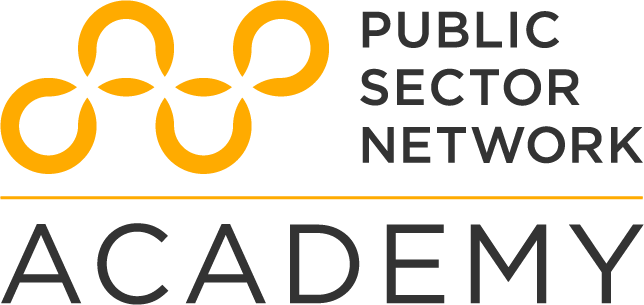Online Training
Effective Crisis Communications
Communicating with Impact for Greater Resilience
2 & 4 June 2025
10:00 AM - 2:30 PM
Next intake: 2 & 4 June 2025 | 10:00 AM - 2:30 PM
Overview
In today’s digital and fast-paced environment, public sector professionals must be ready to communicate effectively during crises. Studies show that over 60% of Australians lose trust in government institutions following a poorly handled crisis, making effective crisis communication a critical skill for public servants. Additionally, 80% of crisis communication failures are linked to inadequate preparation and stakeholder engagement.
This two-day interactive workshop provides government employees with tools, frameworks, and real-world case studies to develop robust crisis communication strategies.
Who Should Attend?
This workshop is designed for professionals at APS 5-EL2 levels, state-based counterparts, and senior local government officials. This training is perfect for public servants involved in:Learning Outcomes
Online Training
Effective Crisis Communications
Session details
- Gain APS & state-level applicable skills tailored to public sector professionals.
- Engage in hands-on, scenario-based crisis simulations for practical learning.
- Learn from real-world Australian case studies and best practices.
Enhance your ability to manage reputational risk in a government context.
- Earn a certification in crisis communication to boost your professional credentials.
Level: Fundamentals
No previous experience necessary
Key Sessions
10.00am Opening Remarks
- Welcome
- Introductions
- Overview and Setting Expectations
10.30am Strategic Communication in Different Crisis Types
- Understand the principles of strategic communication and its role in managing various crises.
- Identify and analyse different crises, including natural disasters, organisational crises, public health emergencies, and socio-political crises.
- Evaluate the communication strategies appropriate for each of the above, considering factors such as audience demographics, severity, and media channels.
- Develop effective crisis communication plans tailored to specific scenarios, integrating risk assessment, message crafting, and stakeholder engagement strategies.
- Apply crisis communication principles to real-world scenarios through case studies and simulations, demonstrating the ability to adapt strategies to dynamic situations.
- Critically assess the ethical considerations and potential consequences of strategic communication decisions made during crises, emphasising transparency, accountability, and trust-building.
12.00pm Break
12.30pm Digital Media Communications During a Crisis
- Digital media in crisis communication: recognising its potential to disseminate information rapidly and reach diverse audiences.
- Identify key digital media platforms and tools and assess their strengths and limitations.
- Understanding and tackling the spread of misinformation, virality of content, and the influence of user-generated content on public perceptions.
- Leveraging digital media monitoring and analytics tools to track conversations, sentiment, and engagement
- Enabling informed decision-making and response strategies.
- Evaluate the effectiveness of digital media communication
2.00pm Q&A and Closing Remarks
2.30pm End of Day 1
10.00am Welcome and Recap
10.15am Ethics and Transparency in Crisis Communication
- Unpacking the ethical principles of crisis communication
- Integrity, accountability, and respect
- Transparency and its role in building trust, credibility, and maintaining organisational reputation
- Asses ethical dilemmas; such as balancing the need for transparency with legal constraints, protecting sensitive information
- Managing diverse conflicting stakeholder expectations
- Integrating ethical considerations into planning and decision-making processes
- Fostering a culture of ethical awareness, continuous learning, and improvement within the organisation
11.45am Break
12.15pm Post-Crisis Recovery and Future Planning
- Rebuilding organisational resilience and reputation
- Key components of post-crisis recovery: assessing damage, restoring operations, addressing stakeholders’ needs, and rebuilding trust and confidence
- Evaluating best practices and case studies
- Strategies for long-term resilience and sustainability
- Exploring risk assessment, scenario planning, and crisis preparedness measures
- Anticipate and mitigate potential future crises, identifying emerging risks, vulnerabilities, and opportunities for proactive intervention
1.45pm Closing Remarks
2.00pm End of Training
Meet Your Facilitator

Dante St James
Trainer & Digital Expert, Clickstarter
Dante is a leading government digital communications specialist with over a decade of experience supporting Commonwealth, state, and local government agencies. As an accredited Meta Lead Trainer and public sector communication strategist, Dante has advised on major government campaigns and crisis communication initiatives. His work spans health, emergency services, and digital transformation projects, providing him with an in-depth understanding of the unique challenges in government crisis response.
What your peers had to say
Register Today
Join this training for professionals working within the Public Sector
Regular
Ends 30 May
$A 1195
per person + taxAdditional discounts are available for group registrations of 10 or more. For group or payment enquiries or custom training solutions, please contact training@publicsector.academy
Customised in-house options available for teams
Interested in any of our online trainings?
You can also choose to have them delivered in house. We will work closely with our inspiring session facilitators to tailor the content around the key development areas your team are prioritising, shape the learning outcomes around your core departmental challenges and make the most of your L&D and upskilling budget.
Enquire here for more informationCan't see what you need?
Download our training catalogue to review all available topics
Download full catalogue
